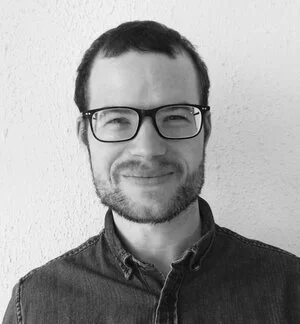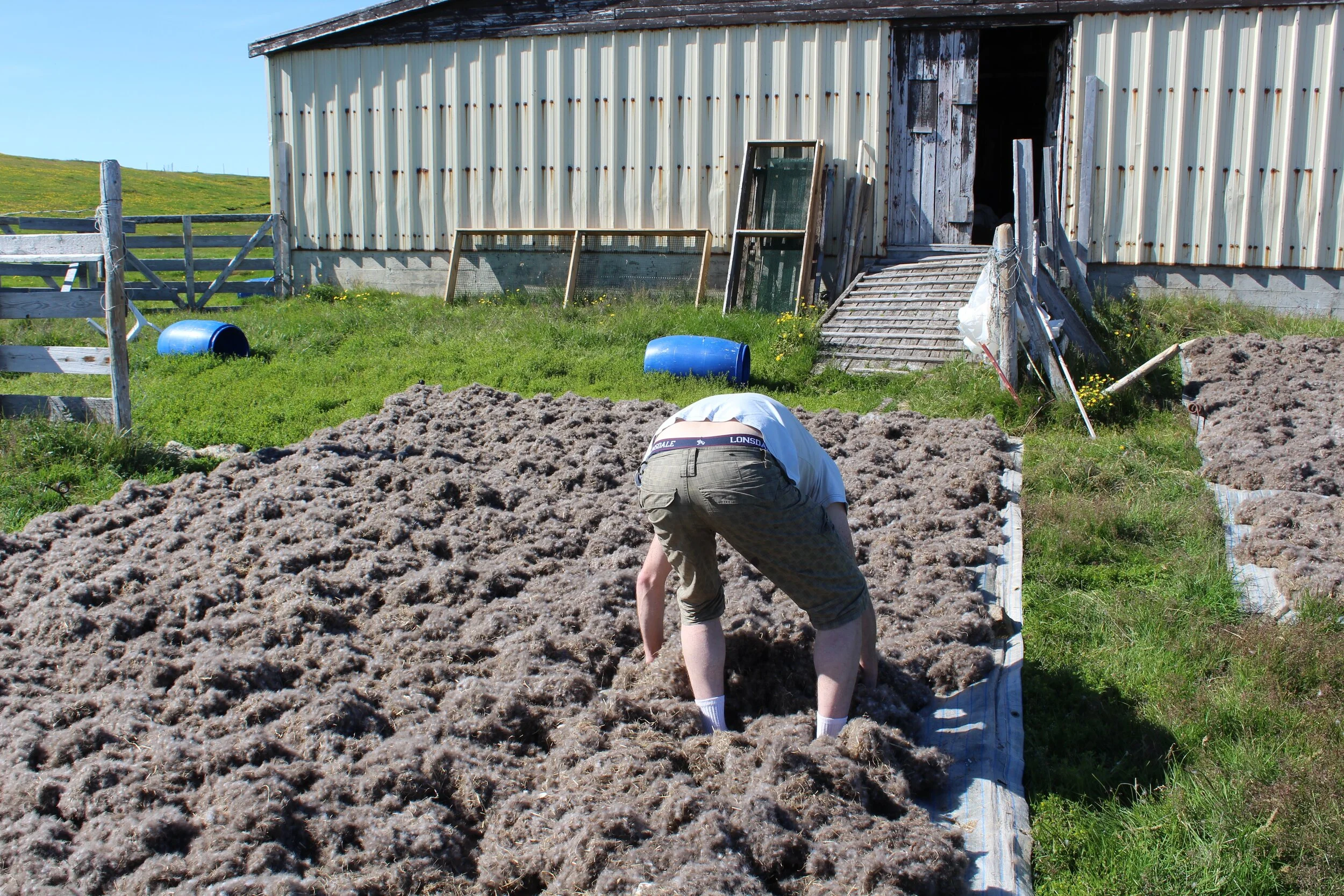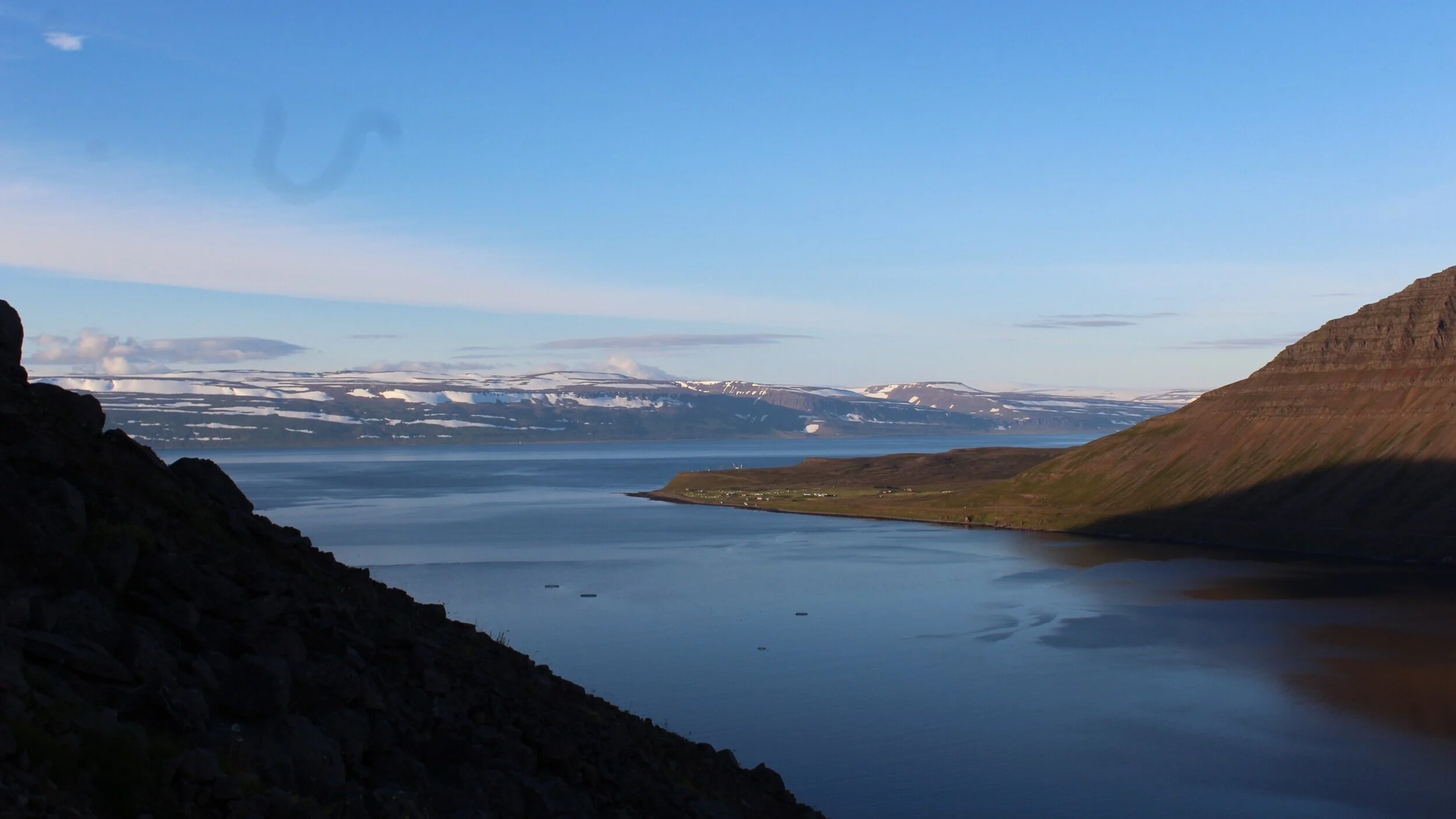Ed Posnett: Using Your Languages and Pursuing a Career in Writing - Part II
Alex Fice, Italian Editor
Edward Posnett is an award-winning writer who studied Spanish and Italian at Fitzwilliam College, Cambridge. After graduating he did a Masters in Arabic and Middle Eastern Studies at the University of Oxford, and then worked in finance for a couple of years. He was drawn to writing through his fascination with nature and natural objects, leading him to write an essay on eiderdown harvesting in Iceland which won the Bodley Head/Financial Times Essay Prize, followed by the publication of his first book, Harvest.
In this part of the interview, we quizzed Ed on his fascination with the natural world, discussed the importance of nature writing, and gleaned many useful tips for anyone interested in a career in writing.
Ed Posnett. Credit: Gabriella Ferrari.
Ed’s writing reveals his long-founded interest in nature and natural objects. It was this curiosity towards the natural world that led Ed to write his award-winning essay ‘Eiderdown’ for the Financial Times, on the Icelandic practice of harvesting the down feathers of Eider ducks. After working in finance for a couple of years, Ed left his job in order to pursue writing, which he balanced with part time jobs. By chance, he came across an article about eiderdown harvesting, which sparked his curiosity as it was so different from anything he had researched before. ‘I was really intrigued by the crossover between the human and non-human world, so the relationships between the Icelanders and these ducks seemed very special and unique, and combined so many things that interested me.’ Ed also finds the object of eiderdown itself immensely compelling; in fact, he keeps a jar of the magical material on his desk, which he shows us during the interview, teasing apart the velcro-like feathers, scrunching it up and allowing it to expand rapidly in his palms upon release. His book Harvest is similarly ‘driven by that love of texture and objects from the natural world.’
Drying down in Aedey, Iceland. Credit: Edward Posnett.
The natural world also unites people from a wide range of disciplines and with different perspectives, be they historical, economic, anthropological, scientific or creative. Ed argues that this is the case with all the objects he researches: ‘For some people Eiders are sacred creatures that should never be touched, for other people they’re sources of income. For writers like me they are a narrative opportunity. [...] The natural world does bring people together and it was wonderful to talk with people from so many different backgrounds [when carrying out research for Harvest] and to get to know them, [...] and I found that talking about objects or about the natural world allowed me to unpick things which were slightly more contentious and difficult to talk about. [...] I should say that the natural world can also divide people, and in [Harvest] there are examples of terrible splits and debates and animosity over things which seem pretty small and insignificant on a global scale, and there are communities being totally divided over the use or the history of a natural resource. So yes, frequently natural objects can bring people together, but also there’s lots of division.’
When discussing the natural world, the conversation inevitably turns to the climate crisis. Given Ed’s fascination with the relationship between man and nature, we wondered if he could offer us an olive branch - an answer to the question: is it possible to achieve a balance between humans and nature, or is the destruction of the natural world an inevitable consequence of humans’ interaction with it? Ed, however, prefers not to provide definitive answers but rather seeks to examine this relationship more closely: ‘What I wanted to write was more an exploration of our relationship with nature and what happens when an object from the natural world, sometimes a sacred object, becomes a commodity, and the kind of chain reaction that takes place, both good and bad. Instead of stating what a reader should feel, I will go on a journey and assist them through that complex web of relationships. I wanted to focus on particular examples where I do think a balance is possible between human desire and the wellbeing of the organisms, the animals or plants that are desired.’ This is exactly what he does by exploring the story of eiderdown harvesting in Iceland and the symbiosis that has been achieved between the locals and the ducks, which they protect from predators in exchange for the precious commodity. For Ed, the Icelandic example provides grounds for hope.
Westfjords, Iceland. Credit: Edward Posnett.
Ed’s award-winning essay for the Financial Times, ‘Eiderdown’, has been recently translated into Italian and published alongside a collection of essays about Iceland in Islanda - The Passenger, by a small Milanese publishing house called Iperborea. In Ed’s opinion, this is Italy at its best - a sign of ‘the rich tradition of publishing in Italy’ - and unlike anything he’s come across in the UK. On the experience of having his book Harvest translated (into Italian, German and Japanese), Ed describes his joy at being able to reach readers around the world: ‘The book has so many stories in it from all over the world, and just the thought of having non English-speaking readers being able to engage with the text is really exciting.’ Whilst the Italian translation of the book has not yet been completed, Ed’s experience of having his book translated into German was extremely positive, he tells us, although he had very little control over it, not speaking German himself: ‘It kind of opened my eyes up to the great challenges of translating. This text was a huge amount of work for her [the translator] and she had lots and lots of queries, and dare I say even identified errors like basic errors of fact, so it was quite anxiety-inducing because you find that by translating a text you become so familiar with the material that you can pick up any inaccuracies quite easily. [...] It's increased the amount of respect that I have had for translators and their extraordinary patience.’
Ed also tells us of his difficulties translating into American English: ‘I had two editors, one in the US and one in the UK, and I quickly became aware of the language differences between British and American English, and was frankly shocked at the extent of the differences. [...] There are a few things that I wrote or terms that I used which are perfectly acceptable in the UK, but which some US readers might potentially query. And then on the point of translation, I got an offer from a very big Chinese publisher to publish a book in Chinese but they wanted to change a lot of the things in the text to make them more politically acceptable, and I took the decision with my agents to turn down that offer. The outrageous thing was that I wouldn't even know what those changes were - I would have to sign a contract whereby they could make whatever changes they wanted. So the book will not appear in Chinese, at least not on the legal market.’
We were keen to find out about Ed’s experiences of interviewing people whilst carrying out his research, whether he spoke the language himself or required an interpreter, and what challenges this raised: ‘I carried out all the interviews in English, and actually there were certain advantages to interviewing in English rather than speaking Icelandic because you can sometimes capture people's individual speech patterns in broken English and I really liked that - I felt that it added something to the piece, that it was clear I wasn't speaking with a native English speaker. Whereas when I was doing my research in Spain or Italy I'd often do the translations myself and so the quotations often seemed as if I had written them - which I had - but it was my rendering of a foreign language.’ Ed begins his projects by reading everything he can on the subject and then starting to speak to people about his research topic, which tends to create a snowball effect as they recommend others people to talk to, leading to a network of contacts. He has also found it easier writing about worlds that are relatively small: there are only three-hundred eiderdown farmers in Iceland and Ed’s trip to Iceland lasted only ten days, therefore producing a limited amount of material, which he finds is easier to work with. ‘There's no great methodology, it’s often me just kind of muddling through as best as I can and trying to remain open, and when I'm researching I almost become like a different person - I feel quite introverted at the moment, doing careful research on my own and having quite a quiet life with my wife and our newly adopted cat. But when I go out I kind of need to become a crazy extrovert to get all of these stories, which is enthralling but also very tiring, and you have very intense periods where you get huge volumes of material and then other periods where you're just hanging around waiting for people.’
Isafjordur, Iceland. Credit: Edward Posnett.
‘Just muddling through’ seems to be an integral part of getting into a career in writing. However, Ed suggests that remaining optimistic and starting small are also very important to the process: he first began researching eiderdown on a holiday to Iceland, which gave him an idea that led to conversations with publishers, resulting in his essay being published in the Financial Times. ‘It's very difficult to plan when you're starting out, which is why I say to people who are thinking about ideas “just start small”: just write a small article and become obsessed with a particular idea.’ In some cases, a successful article could lead to a deal that would fund a book; other options are to find a fellowship that provides some funding and can be combined with a book deal. Ed also emphasises that persistence is vital for anyone hoping to get into writing, especially when pitching ideas: ‘You're looking at a hit rate of sometimes one in five, one in ten. I think it's good to say that so people don't get disheartened. I think the most important thing is just to keep an even keel. And obviously, you want success, you want an idea to be picked up, but a lot of ideas just don't work out. My first book project didn't work out and I put a lot of effort into it, did a lot of research, and frankly at the time it felt catastrophic. But now I feel very grateful for it because I know that I wouldn't be writing about the things that really interest me now without having had that experience.’
Another challenge when starting a career in writing is that it can be hard to make ends meet, which is why Ed suggests a ‘hybrid existence’; after he graduated he spent some time working in finance, but has also been a tutor and worked at a homeless shelter for a while. A balance between writing and other jobs may just be the necessary juggling act needed to secure a path into writing. ‘It's a challenge that requires a lot of thought and often support as well. And I think support can mean many different things. It might mean having a good friendship group, people who you can rely on - that might mean staying at a friend's place while you're doing research, or it might mean having a good group of readers who can read your work.’ Ed tells us that he has found great support from his linguist friends from university, who read early drafts of his work and provide feedback, which Ed does for them in return. ‘Many of those relationships came from Cambridge, and I suppose the advice I would have would be just to hang on to them because they're really special and really important. You may not realise it, at that moment.’
And what further advice does this Cambridge alum wish to impart to current students as they contemplate a life after university, potentially pursuing writing? ‘Cultivate an interest in the world around you, which is a very active skill and often quite hard to do with all the stress that surrounds us, particularly with a lot of the discourse in the media. We're bombarded with stories the entire time and sometimes there's a value in switching yourself off from this and pursuing different angles. For me it was often a love of texture or a love of objects that got me to that place. And read widely. I mean it's an obvious thing, but at Cambridge it's an expectation, and some people leave university and decide they don’t need to read much anymore and I think that's a real shame.’
In case you missed Part I, you can catch up on it here. To find out more about Ed’s work and discover some of his writing for yourself, visit: https://www.edwardposnett.com/about



